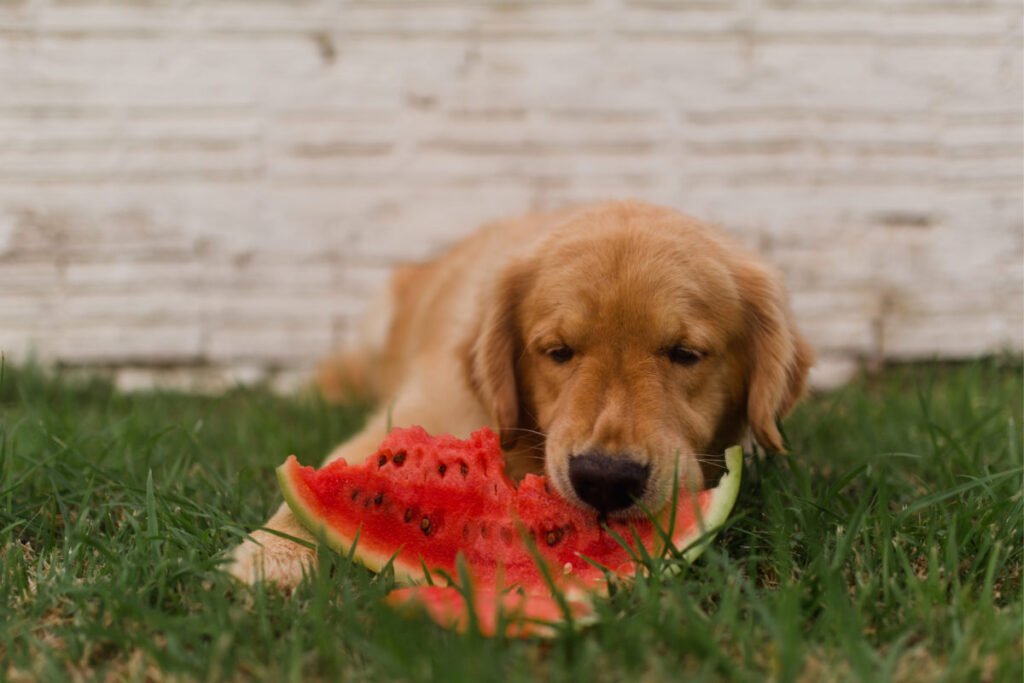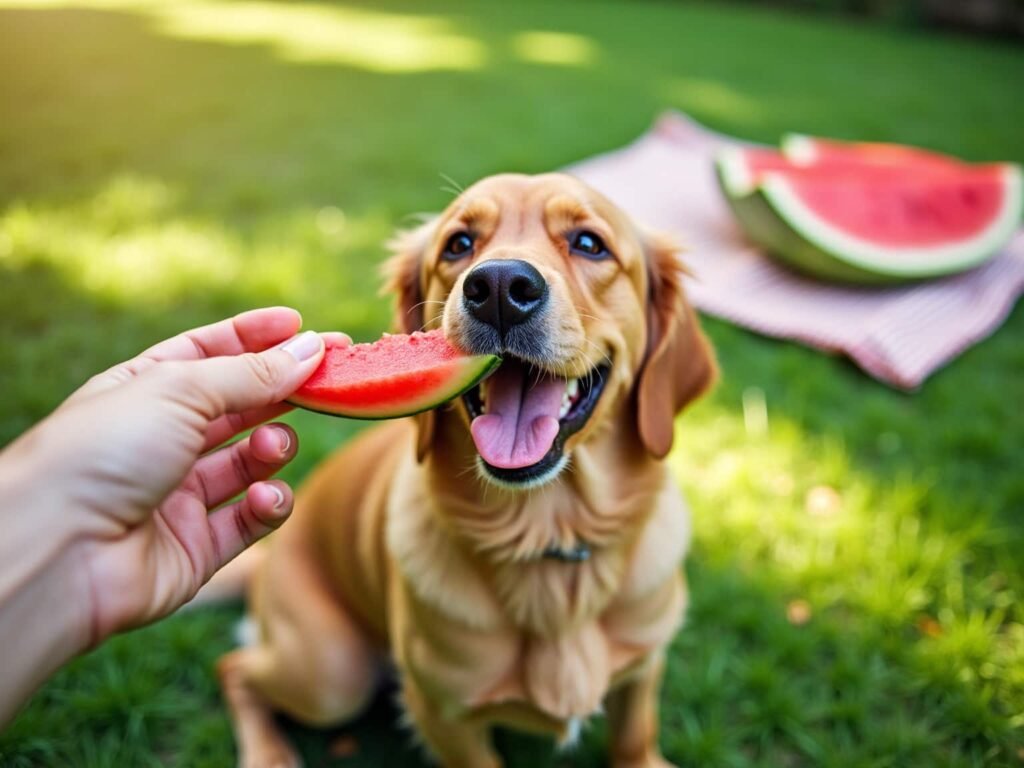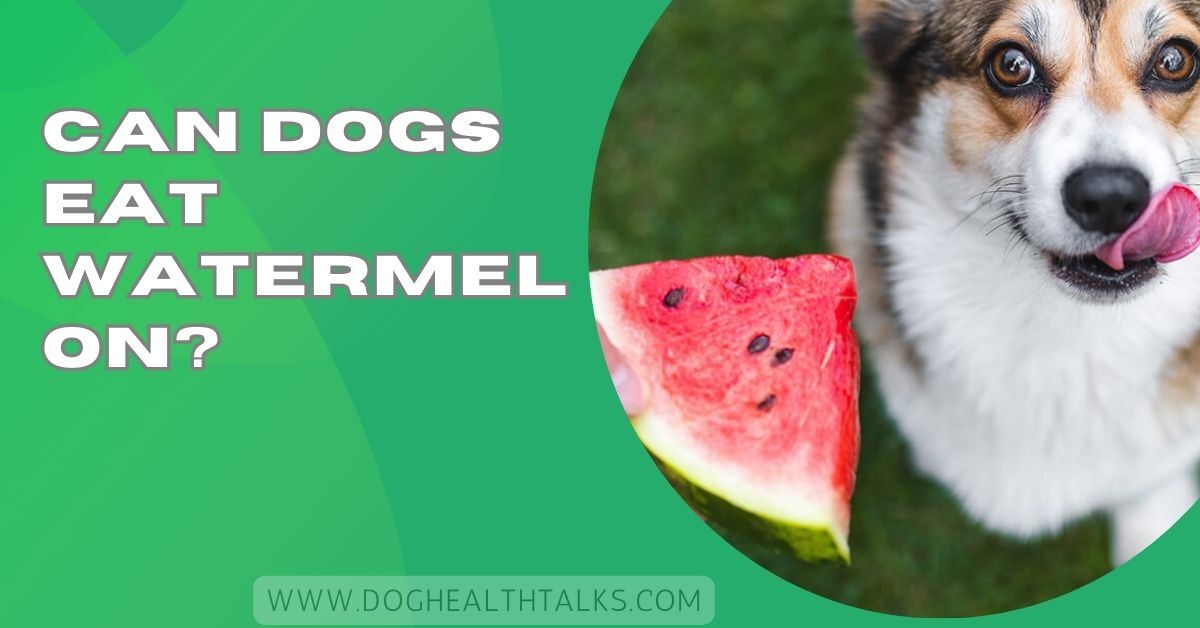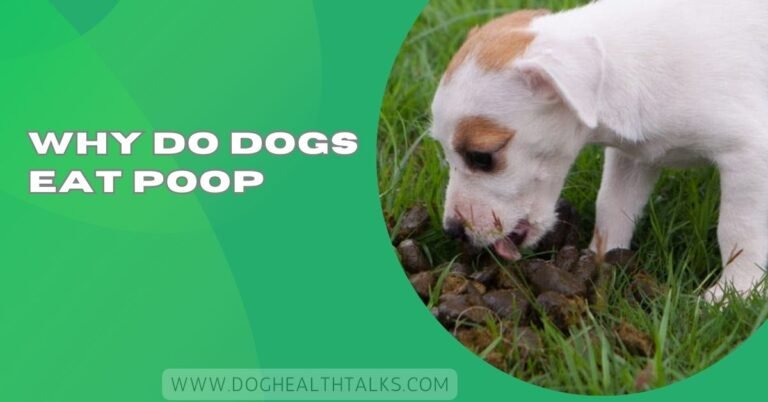Can Dogs Eat Watermelon? – Proven Benefits and Risks (2026)
Can dogs eat watermelon is a common concern among pet owners, especially during summer, when sharing a hydrating and refreshing treat feels tempting. Watermelon is one of the most refreshing fruits we enjoy, especially on hot summer days. If you’re a dog owner, you’ve probably wondered if it’s safe to share this juicy snack with your furry friend.
Yes, dogs can eat watermelon safely. It’s a refreshing, hydrating treat for any age. Just remove the black seeds and rind to avoid digestive blockages, and serve small amounts in moderation.
In this guide, you’ll learn the safe way to feed watermelon, how much to give, and the health benefits for your pup.
Is It Safe for Dogs to Eat Watermelon?
Yes, watermelon is safe for most dogs as long as it’s served correctly. The juicy red flesh is full of vitamins, minerals, and water, which makes it a refreshing, low-calorie snack.
The most important part is preparation: always remove the seeds and rind, as they can cause stomach problems or blockages.
Give watermelon in small pieces as an occasional treat, not as a replacement for your dog’s regular diet.
Start slowly if your dog hasn’t had it before, and always keep an eye out for unusual reactions, such as stomach upset.
Can Dogs Eat Watermelon Rind?

No, dogs should not eat the rind. The green outer layer is very tough, and dogs can’t easily chew or digest it.
Eating rind may lead to stomach pain, diarrhoea, or even an intestinal blockage, which can be serious.
Even if your dog swallows only a small piece, it can still cause discomfort or pose a choking hazard.
To keep your dog safe, always cut away the rind before serving watermelon. If your dog accidentally eats a large amount of rind, contact your veterinarian immediately for guidance.
Can Dogs Eat Watermelon Seeds?
Seeds are not safe for dogs because they can block the digestive tract, especially in smaller breeds.
Swallowing a couple of seeds usually isn’t dangerous, but larger amounts increase the risk of stomach problems or intestinal blockage.
Seeds also contain trace compounds that dogs don’t need in their diet. The safest option is to carefully remove all seeds before giving your dog watermelon or buy seedless varieties.
That way, you can share a sweet, juicy bite with your pup without worrying about hidden dangers.
Is Watermelon Good for Dogs?
Yes, watermelon can be perfect for dogs when given in moderation. It’s made up of over 90% water, which helps keep dogs hydrated on hot days.
It’s also rich in healthy nutrients, including vitamins A, B6, and C, as well as potassium, all of which support your dog’s overall health.
Since it’s low in calories and contains no fat or cholesterol, watermelon is a guilt-free snack for dogs who need to watch their weight. Just remember to remove seeds and rind, and serve it as a small treat.
Also Read: Can Dogs Eat Tamales: Secret Tips in the Proven 2026 Guide!
Is Watermelon Bad for Dogs?
Watermelon isn’t sour for dogs when appropriately prepared, but it can cause problems if given the wrong way.
Seeds and rind are the main risks, as they can lead to blockages or stomach upset. Even the flesh, if eaten in large amounts, may cause diarrhoea, bloating, or discomfort.
Dogs with diabetes or sensitive stomachs should avoid watermelon because of its natural sugar.
The key is moderation: give small, seedless, rind-free pieces as an occasional treat. That way, your dog can enjoy it safely without health risks.
How Much Watermelon Can Dogs Eat?
The right amount depends on your dog’s size, but the golden rule is moderation. Treats like watermelon should make up no more than 10% of your dog’s daily calories.
For small dogs, just two or three small cubes are enough, while medium and large dogs can enjoy a handful.
Extra-large breeds may have a few more, but portion control is always essential. Too much can lead to diarrhoea or stomach upset.
Think of watermelon as a refreshing snack, not a meal replacement, and always watch your pup for any digestive issues.
How to Feed a Dog Watermelon

- Wash thoroughly – Always rinse the watermelon to remove dirt, bacteria, or pesticides that could harm your dog.
- Slice carefully – Cutting into smaller sections makes it easier to remove the unsafe parts and portion the fruit correctly.
- Remove all seeds – Seeds may look harmless, but they can cause choking or intestinal blockages, especially in small dogs.
- Trim away the rind – The green rind is tough to digest and may lead to stomach upset or severe blockages.
- Cut into small cubes – Bite-sized pieces help prevent choking and make the fruit easier for your dog to chew.
- Serve in moderation – Watermelon is a treat, not a meal; too much can upset your dog’s stomach.
- Add variety if desired – Freeze small cubes for a cooling summer snack, blend into a puree, or mix with plain yoghurt for a fun, healthy twist.
Read More: Is Fabuloso Safe For Dogs? – Safety Tips for Pet Parents!
Health Benefits of Watermelon for Dogs
- Hydration boost – Watermelon is about 90% water, helping keep your dog cool and refreshed.
- Low-calorie treat – A guilt-free snack that won’t add extra pounds.
- Rich in vitamins – Provides vitamins A, B6, and C to support immunity and skin health.
- Packed with antioxidants – Helps fight free radicals and promotes overall wellness.
- Supports digestion – Natural fibre can aid in healthy bowel movements.
- Cooling summer snack – A safe way to prevent overheating on hot days.
Can Puppies Eat Watermelon?
Yes, puppies can eat watermelon, but only very small amounts.
Puppies have sensitive stomachs. Too much watermelon can cause:
- Loose stool
- Upset stomach
Always:
- Remove seeds
- Remove rind
- Cut into tiny pieces
For young puppies, watermelon should be an occasional treat, not a regular snack.
How Much Watermelon Can a Dog Eat?
Watermelon should be no more than 10% of your dog’s daily food.
Portion Guide by Dog Size
- Small dogs: 1–2 small cubes
- Medium dogs: 3–4 small cubes
- Large dogs: A small bowl of cubes
Start with a small amount. Watch your dog for any signs of stomach upset before offering more next time.
Best Ways to Serve Watermelon to Dogs
There are many safe and fun ways to serve watermelon to dogs.
1. Fresh Cubes
- Cut seedless watermelon into small, bite-sized cubes.
- Serve chilled or at room temperature.
2. Frozen Watermelon Treats
- Freeze small pieces for a cooling summer snack.
- Great for teething puppies or hot days.
3. Mashed Watermelon
Mash a small amount and mix it with regular dog food for added moisture.
4. Watermelon Ice Pops (Dog-Safe)
- Blend watermelon flesh and freeze it in molds.
- Do not add sugar, honey, or artificial sweeteners.
Are Dogs Allergic to Watermelon?
Most dogs are not allergic to watermelon, but it’s still possible for some to react. An allergy may manifest as itching, skin redness, vomiting, or diarrhoea shortly after consuming the allergen.
To keep your dog safe, introduce watermelon slowly in tiny amounts and watch closely for any unusual signs.
If your dog shows discomfort, stop giving the fruit and call your vet for advice. While watermelon allergies are rare, every dog is different, so it’s always a good idea to test carefully before making it a regular treat.
Does Watermelon Give Dogs Diarrhoea?
Yes, too much watermelon can cause diarrhoea in dogs. The fruit is very high in water and fibre, which can upset your dog’s stomach if eaten in large amounts.
Even though watermelon is healthy, moderation is essential. Start with a few small cubes and see how your dog reacts.
If loose stools or vomiting happen, cut back or stop giving it. Dogs with sensitive stomachs may be more prone to this issue. Keep portions small, remove seeds and rind, and treat watermelon as an occasional snack.
Can Dogs Eat Watermelon Juice?
Plain watermelon juice is not recommended.
Juice:
- Contains more sugar
- Lacks fiber
- Can upset digestion
If you give juice, make sure it is:
- Fresh
- Unsweetened
- Only a few sips
Whole fruit is always a better choice.
Can Dogs Eat Watermelon Seeds?
No, dogs should not eat watermelon seeds. Even a few seeds can cause stomach upset or blockages, especially in small breeds.
Always remove black seeds before serving. Seedless watermelon is the safest choice, giving your dog the juicy treat without any digestive risks.
Can Dogs Eat Watermelon Every Day?

Dogs can enjoy small amounts of watermelon often, but daily feeding isn’t necessary. While safe, too much can upset their stomach due to natural sugars and fibre.
Think of watermelon as a healthy treat for hot days, not a daily diet item. Always balance with other foods.
Can dogs eat watermelon ice cream?
Dogs should not eat regular watermelon ice cream. It often has sugar, milk, or sweeteners that upset dogs’ stomachs. You can make dog-safe ice treats using plain watermelon only, frozen without sugar or dairy, and give small amounts.
Can Dogs Eat Frozen Watermelon Safely?
Yes, dogs can consume frozen watermelon safely if it is made the right way.
It is always important to remove the seeds and rind before freezing to prevent choking or digestive problems.
Freeze watermelon into small pieces to prevent damaging your dog’s teeth.Frozen watermelon is a great cooling treat during hot weather but should be fed to dogs in moderation.Feeding dogs too much frozen watermelon can cause stomach upset, especially in sensitive dogs.
Can dogs eat cantaloupe?
Yes, dogs can eat cantaloupe in small amounts. It has vitamins and water that help hydration. Always remove the rind and seeds, cut into small pieces, and give only sometimes because cantaloupe contains natural sugar.
Can Dogs Eat Pineapple?
Yes, dogs can eat pineapple in moderation. Fresh pineapple is safe and full of vitamin C and fibre, but avoid canned pineapple because it contains too much sugar.
Always remove the rigid core and spiky skin. A few small chunks make a refreshing, healthy treat.
Conclusion
Watermelon can be a safe, refreshing, and healthy treat for your dog when appropriately served. The juicy red flesh is packed with hydration and nutrients, but seeds and rind should always be removed to avoid health issues. Remember, moderation is key—watermelon should complement your dog’s diet, not replace it.
Whether served fresh, frozen, or mixed into other safe foods, it can be a fun way to spoil your pup while keeping them cool on hot days. With a bit of care, you and your furry friend can both enjoy this sweet summer snack. Overall, can dogs eat watermelon safely depends on proper preparation, portion control, and serving it as an occasional treat without seeds or rind
FAQ’s
Can dogs eat watermelon at night?
Yes, dogs can eat watermelon at night in small amounts, but it is not recommended to give them large amounts as it may cause frequent urination or stomach upset.
Can senior dogs eat watermelon?
Yes, senior dogs can eat watermelon if they have no digestive issues, but portions should be smaller due to sensitive digestion and natural sugar content.
How Much Watermelon Can I Give My Dog?
Give a few small cubes as an occasional treat. Keep it under 10% of daily calories to avoid upset stomach or diarrhoea.
Why Can’t You Give Dogs Watermelon?
You can, but only safely. Seeds and rind can cause digestive problems, so always remove them. Excessive fruit consumption may also upset your dog’s stomach.
What Fruit Can’t A Dog Eat?
Dogs should never eat grapes, raisins, cherries, or avocados. These fruits are toxic and can cause kidney failure, stomach issues, or serious health risks.
Is Watermelon A Laxative For Dogs?
Watermelon isn’t a true laxative, but its fibre and high water content may loosen stools if given in large amounts. Always serve in moderation.
What Is The Healthiest Fruit For Dogs?
Blueberries, apples (without seeds), and watermelon are among the healthiest. They’re low in calories, rich in vitamins, and safe when served in small amounts.
Can Dogs Eat Cucumber?
Yes, cucumber is safe, low in calories, and hydrating. Serve in small slices without seasoning for a crunchy, refreshing treat your dog will enjoy.
Can Dogs Eat Bananas?
Yes, bananas are safe in moderation. They’re high in potassium and fibre, but also sugar, so only feed small pieces as an occasional treat.
Can Dogs Have Oranges?
Dogs can eat oranges in small amounts. Peel them first, remove seeds, and offer a slice or two. Too much citrus may cause stomach upset.
Why Do Dogs Love Watermelon So Much?
Most dogs love watermelon because it’s sweet, juicy, and refreshing. Its cool texture and natural sugars make it an irresistible summer treat for many pups.
Does Watermelon Clean Dogs’ Teeth?
No, watermelon doesn’t clean teeth. While chewing can help somewhat, it lacks the texture necessary for optimal dental health. Use dental chews or brushing instead.






